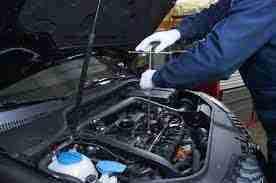
Owning a car comes with its fair share of responsibilities, and one of the most crucial among them is regular inspections. While they might seem like an unnecessary hassle or an additional expense, car inspections are an investment in the longevity and efficiency of your vehicle. In fact, they can end up saving you a significant amount of money in the long run. Let’s delve into how car inspections can be a financially savvy decision.
Ensuring Safety
First and foremost, regular car inspections ensure your safety on the road. From checking the brakes and tires to examining the engine and suspension, inspections catch potential issues before they escalate into costly repairs or, worse, accidents. By identifying and addressing safety concerns early on, you not only safeguard yourself and your passengers but also prevent the financial repercussions that can arise from accidents and injuries.
Preventing Major Repairs
Imagine driving along, only to have your car break down unexpectedly. Not only is it inconvenient, but it can also be a financial nightmare, especially if the breakdown results from neglecting routine maintenance and inspections. Regular inspections allow mechanics to detect minor problems before they spiral into major repairs. Whether it’s a worn-out belt, a leaking hose, or a faulty sensor, addressing these issues promptly can save you from the hefty bills associated with extensive repairs down the line.
Improving Fuel Efficiency
Did you know that a well-maintained car is also a more fuel-efficient one? Over time, factors like dirty air filters, misaligned wheels, or worn-out spark plugs can significantly decrease your vehicle’s fuel efficiency. By conducting regular inspections and addressing any issues affecting performance, you can ensure that your car operates at its optimal efficiency, saving you money on fuel costs in the long run.
Extending Vehicle Lifespan
Cars are complex machines with numerous components working together. Without proper maintenance and care, these components can wear out prematurely, leading to the need for costly replacements or even a new vehicle sooner than expected. Regular inspections help extend the lifespan of your car by identifying and addressing wear and tear before it causes irreparable damage. By investing in preventive maintenance, you can maximize the longevity of your vehicle and delay the expense of purchasing a new one.
Preserving Resale Value
Whether you plan to keep your car for years to come or eventually sell it, maintaining its resale value is essential. A well-maintained vehicle with a documented history of regular inspections and maintenance commands a higher price on the resale market. Potential buyers are willing to pay more for a car they know has been taken care of, saving you from the depreciation hit that comes with neglecting maintenance and inspections.
Conclusion
While car inspections may seem like a minor inconvenience, they are an essential aspect of responsible car ownership. By investing in regular inspections, you not only ensure your safety on the road but also save yourself from the financial burdens associated with neglecting maintenance. From preventing major repairs to improving fuel efficiency and extending your vehicle’s lifespan, the benefits of car inspections are undeniable. So, the next time you schedule a car inspection, remember that you’re not just spending money—you’re making a wise investment in the long-term health and value of your vehicle.